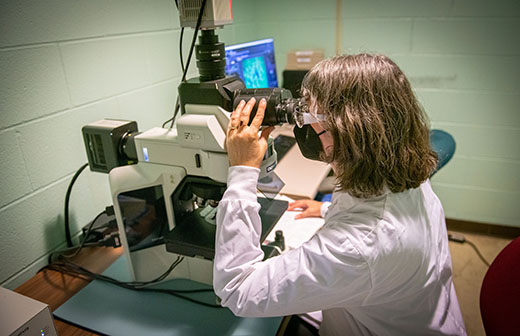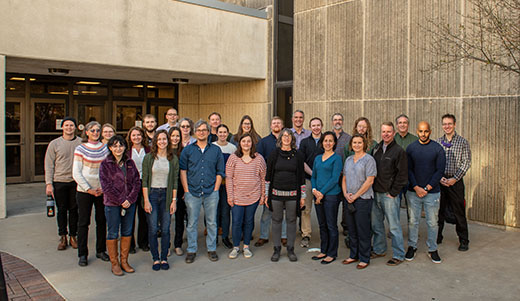NIH continues supporting K-State neuroscience research center with $11.2 million grant
Monday, July 25, 2022

Kimberly Kirkpatrick, Kansas State University distinguished professor of psychological sciences and CNAP director, researches the neurobiology of timing and impulsivity. | Download this photo.
MANHATTAN — The Cognitive and Neurobiological Approaches to Plasticity Center, or CNAP, at Kansas State University will continue important neuroscience-related research, thanks to a grant of $11.2 million from the National Institutes of Health.
The phase II grant is part of the Centers of Biomedical Research Excellence, or COBRE, program, and builds on phase I research, which started in July 2017 with the original $10.6 million COBRE grant that established CNAP.
The phase II grant will fund the next five years of CNAP research on plasticity, which is the way the brain changes over time. CNAP is a statewide effort led by K-State that also involves the University of Kansas and Wichita State University. At K-State, CNAP involves interdisciplinary researchers from the College of Arts and Sciences, the Carl R. Ice College of Engineering, the College of Health and Human Sciences, and the College of Veterinary Medicine.
"Receipt of the phase II COBRE award is a fantastic achievement for the CNAP center," said Kimberly Kirkpatrick, university distinguished professor of psychological sciences and CNAP director. "We will be using the funds to continue to support junior faculty development and make significant infrastructure upgrades to core facilities to support cutting-edge neuroscience techniques."
The new grant will help CNAP continue to reach three key goals:
• Promote neuroplasticity research by supporting junior faculty.
• Establish a critical mass of investigators in this area of research to compete for external funding.
• Support and improve research infrastructure for neuroplasticity research.
The phase II funding also will help with three new research projects; continue to expand upon three research core facilities, including the Behavioral Neuroscience Core, the Cognitive Neuroscience Core and the Neuroinformatics Core; operate the pilot grant program; and strengthen connections with other research centers and organizations in through scientific exchange networks.
The NIH National Institute of General Medical Sciences supports COBRE awards, which are part of the Institutional Development Award program that focuses on building research capacity in states with historically low levels of NIH funding. The COBRE program funds research in three separate, five-year phases.
Read more about researchers and projects involved in the Cognitive and Neurobiological Approaches to Plasticity Center.

